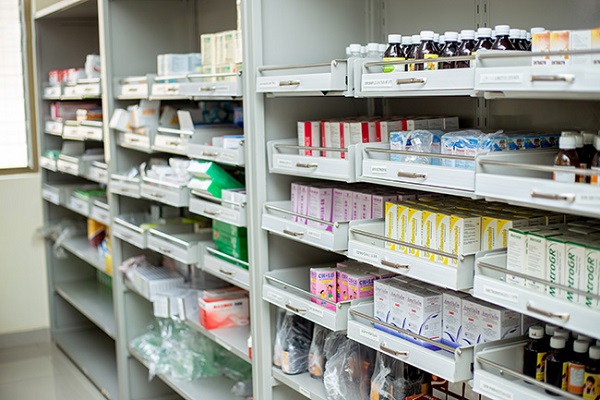Chamber of Pharmacy, pharmaceutical importers announces price cuts after cedi appreciation – Nsemkeka
The Ghana National Chamber of Pharmacy (GNCoP) and the Pharmaceutical Importers and Wholesalers Association (PIWA) have publicly commended the government for the recent appreciation of the Ghanaian cedi, describing it as a major boost to the pharmaceutical sector and a welcome relief for businesses and consumers alike.
In a joint statement issued by Pharm. Audrey Serwaa Bonsu, CEO of the Chamber, the two bodies lauded the Ministry of Finance and the Bank of Ghana for the fiscal and monetary policies that have helped stabilize the currency. The cedi has seen a sustained improvement in value against major foreign currencies, particularly the US dollar, in recent months.
The Ghanaian cedi has experienced notable gains in recent months following what government describes as tighter fiscal controls, increased foreign inflows and stabilizing macroeconomic indicators. The pharmaceutical industry, which is import-reliant, had been particularly hard-hit during periods of high currency volatility, leading to rising drug prices and limited availability of essential medicines.
According to GNCoP and PIWA, the appreciation of the cedi has significantly reduced foreign exchange costs for pharmaceutical importers. This is especially impactful in a sector that depends almost entirely on imports for active pharmaceutical ingredients (APIs), finished medicines, medical consumables, and equipment.
“The stability and appreciation of the cedi are providing much-needed relief in three major ways,” the statement said. These include:
- Reduced Cost of Imports: A stronger cedi means lower prices for essential medicines and health products.
- Improved Business Predictability: Currency stability allows importers to plan and price more accurately, benefiting especially small and medium-sized pharmaceutical businesses.
- Enhanced Access to Medicines: With decreased cost pressures, pharmacies and hospitals are better positioned to stock life-saving drugs, improving public health outcomes.
Despite the current gains, the pharmaceutical bodies noted that the sector has endured significant losses over time due to earlier depreciation of the cedi. Many businesses are still holding inventory purchased at higher exchange rates, posing continued financial challenges.
Nonetheless, in what they describe as a show of solidarity with national efforts to bring inflation under control and support consumer welfare, GNCoP and PIWA have announced a 5–15% reduction in medicine prices across the board.
“This decision is a demonstration of our sector’s commitment to national development and public health,” the statement added. The reduction is expected to ease pressure on both consumers and healthcare providers while enhancing access to vital medications.
The Chamber and PIWA urged the government to continue its prudent economic management and expand support for the private sector, particularly the pharmaceutical industry, which they described as central to Ghana’s public health and medicine security goals.
They reaffirmed their commitment to collaborate with government and other stakeholders to keep the sector vibrant, sustainable, and accessible to all Ghanaians.

